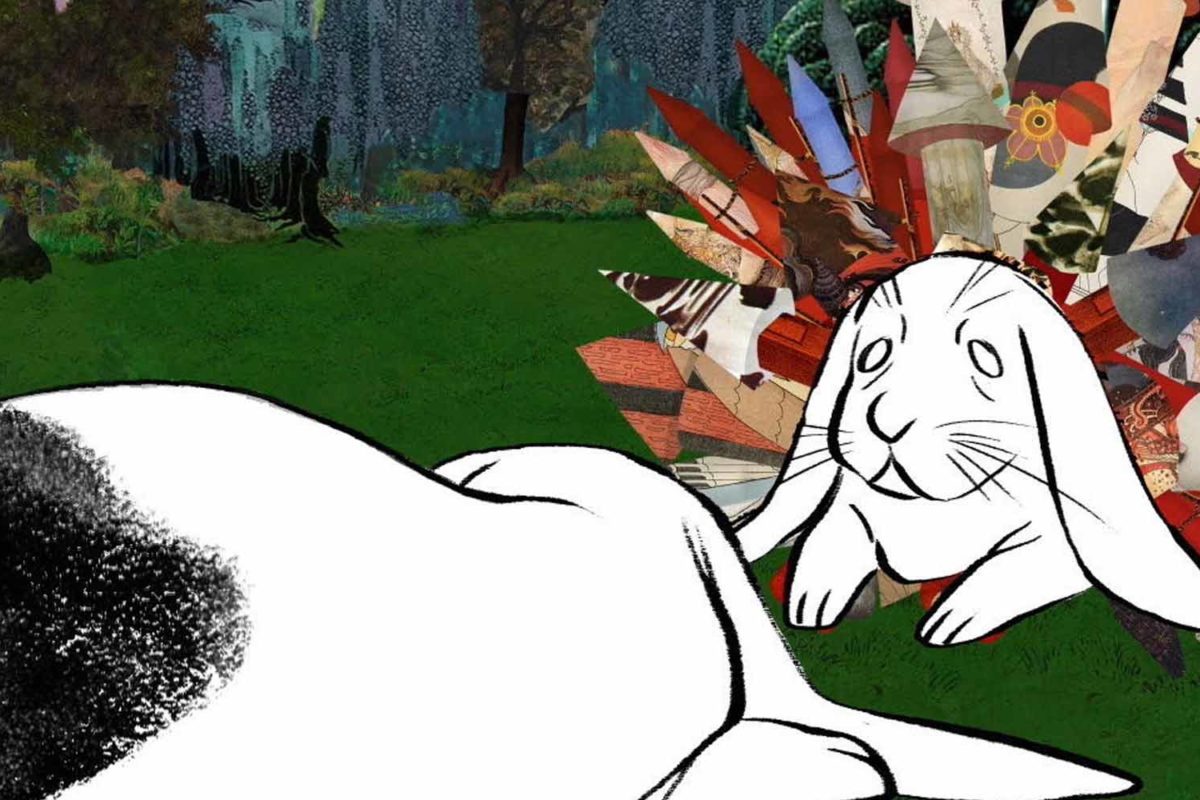What Will Become of Us? Childhood Loneliness in Rachel Rose’s Lake Valley
Most children’s texts play with the idea of loneliness while ultimately returning the child to a safe and loving home. The children end their stories with newfound understandings of how to progress into adulthood or skills that will help them get there. Often, as in the case of Max in Maurice Sendak’s Where the Wild Things Are, the child decides to return home because of the loneliness and isolation of the enchanted environment. Lake Valley does not exactly return the viewer, or the creature, to the promise of an attentive home, nor does it drastically reorient the creature’s understanding of home. As the film ends, viewers move up and away from where the creature rests in a patch of dirt. The creature grows smaller as the buildings around them multiply until they are a tiny, distant white dot on the screen. If anything, Rose’s creature is more isolated and alone than at the beginning of the work. He is also, perhaps, more aware of his inability to fully escape reality. In this way, Rose’s film positions itself within the history of children’s escape stories while resisting the impulse to return its protagonist to the real world with a fresh, optimistic reorientation. If Hansel and Gretel return to their doting father with material riches and a newfound self-reliance, the creature in Lake Valley returns to the suburb knowing that the forest can be as lonely as home.
The forests and enchanted lands of children’s literature are conflicted terrain where protagonists explore power, test knowledge, find friendship, feel loss, and grapple with their inevitable maturation. Children are aware that the fantastic, as exciting and exhausting as childhood itself, also has an expiration date. Rose’s creature, like the children in classic stories, must return home because the only other option seems to be going out like a candle, or going up in a brilliant firework display.
Source link








Michael tuttle says: